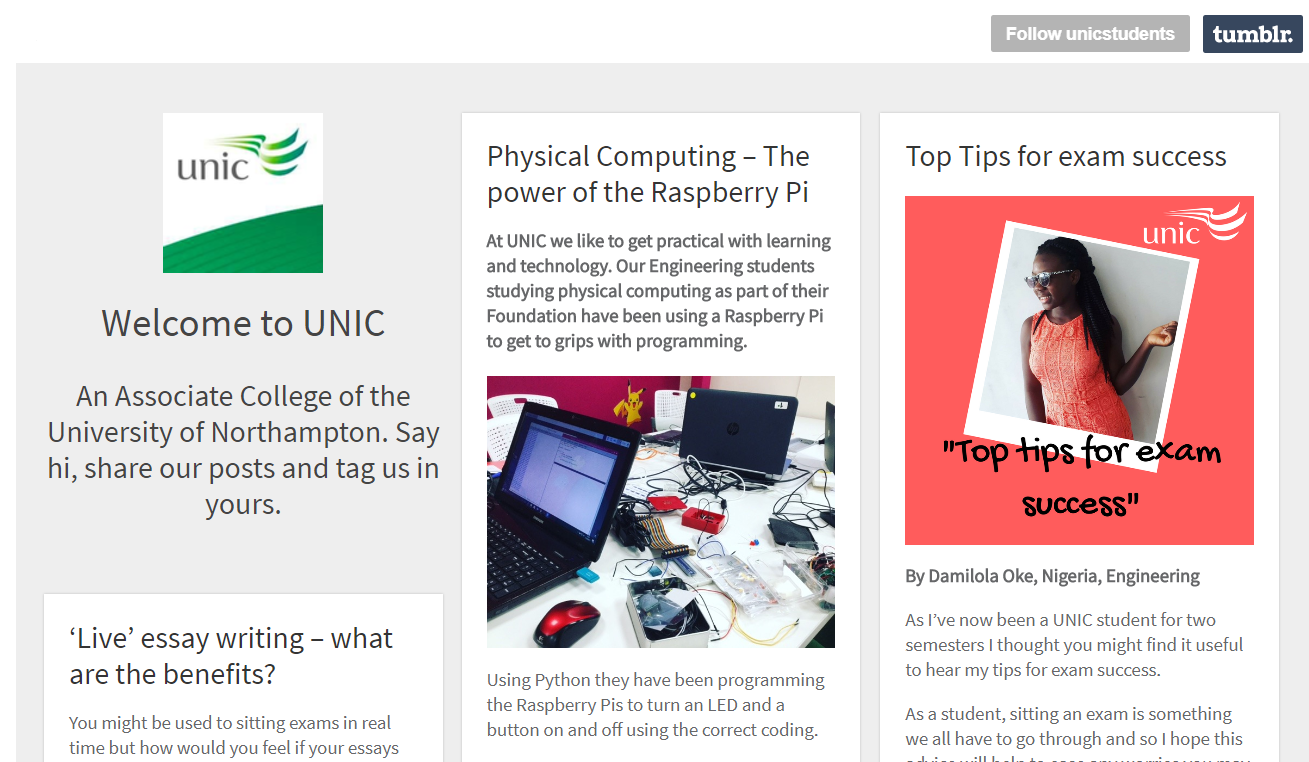‘Live’ essay writing – what are the benefits?

You might be used to sitting exams in real time but how would you feel if your essays were also submitted in a similar way? UNIC lecturer, Simon Thompson, has been exploring this in his classes recently to decide whether this could be the future of university assignments.
Essays are usually weeks or even months of work that are set well in advance of the deadline. As a piece of work they are usually carefully planned with time to edit and research until you have the finished product you can be proud of. ‘Live’ essays however, are completely different.
Similar to exam style, live essay writing is done in controlled conditions and within a strict time period. The question is not given in advance and you must still construct your essays and reference all within the given time period. You do get to bring notes but these need to be on the whole module rather than just a topic, since you cannot be sure on the question that will come up. There is also a five minute reading period before the hour of writing.
Simon Thompson commented: “I have done this exercise with UNIC students twice now and both times I have been pleasantly encouraged by the results. Although there isn’t quite the same level of grammatical accuracy, you could see many students really preferred the fact it is done there and then rather than being a task that they worried about for several weeks before they returned to it. It encourages them to review their note-taking skills while allowing them the security of checking their understanding during the assessment using online research.”
In these ‘live’ essays, foundation students are set up in a computer room, with a computer or pen and paper and their prepared notes from the past 2 weeks of lectures and independent studies, and had one hour to respond to a discussion question. Most responses achieved around 500 words and incorporated anywhere from 1-10 references.
So, if this is all sounding like a student nightmare what are the benefits?

We interviewed Mugtaba Gourashi, Foundation Business Student, who just sat the live essay task and this is what he thought.
How did you find the experience?
I actually quite liked the experience of getting an essay finished there and then rather than it taking up so much of my study time. I obviously had prepped but you could not prep to the same level as if you were doing a normal essay.
Did you feel like you had enough time?
The time went so quick because I was just writing and trying to get everything down that I could. I did think I would run out of time but it was fine in the end.
What was the hardest thing?
The hardest thing was the time and also the referencing as that takes a lot of time in itself.
What advice would you give to any student who was about to sit a live essay?
PLAN! I took in some rough skeleton plans on a few topics and then when I knew the question I knew what template to use. That preparation meant that I could just recite a lot of my notes rather than start from scratch.
After the experience do you prefer live essays or normal style essays?
I think I might prefer live essays because I felt like I had less time to worry and it was all over in an hour rather than weeks of work.
To sum up, the positives of live essay writing are:
- Less time to stress and get anxious
- Marking scheme that reflects writing time allowed
- Concentrate on sense making rather than perfect grammar
- Essay over in hours rather than weeks and weeks
Simon Thompson also mentioned in the future he might look at increasing the five minute reading time at the start to a fifteen minute reading and drafting period prior to the hour for writing. He said, “I think the group this time felt it would help them to settle in to the exam better and it would still ‘fit’ in a session so I will try that next semester.”
What do you think about the concept of a live essay? Join the conversation on Yammer or tweet Simon at @bizzypeople as we would love to hear from you.
UNIC originally shared these practices here on their vibrant Tumblr blog which shares learning & teaching practices as well as student experiences at UNIC:
